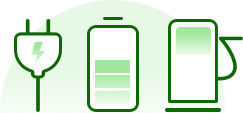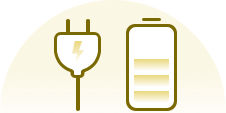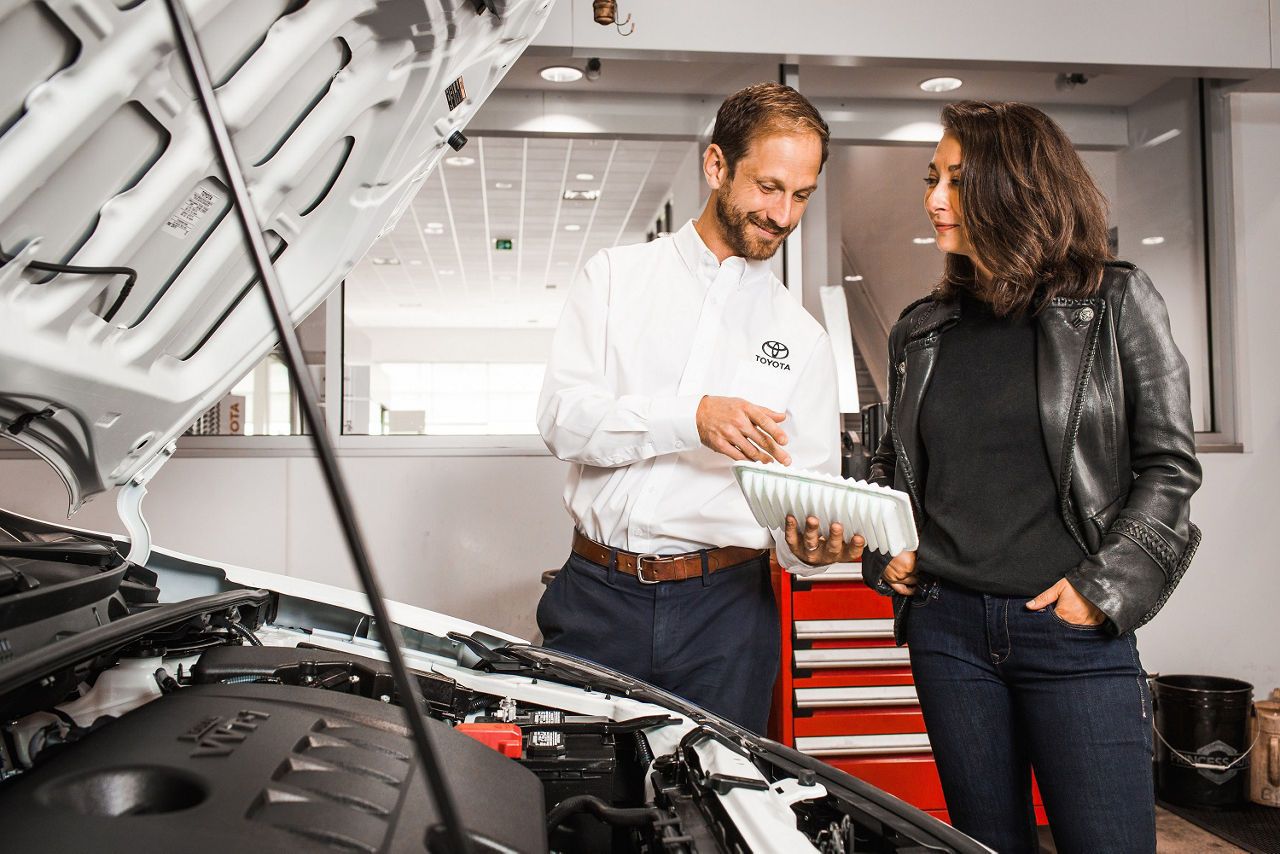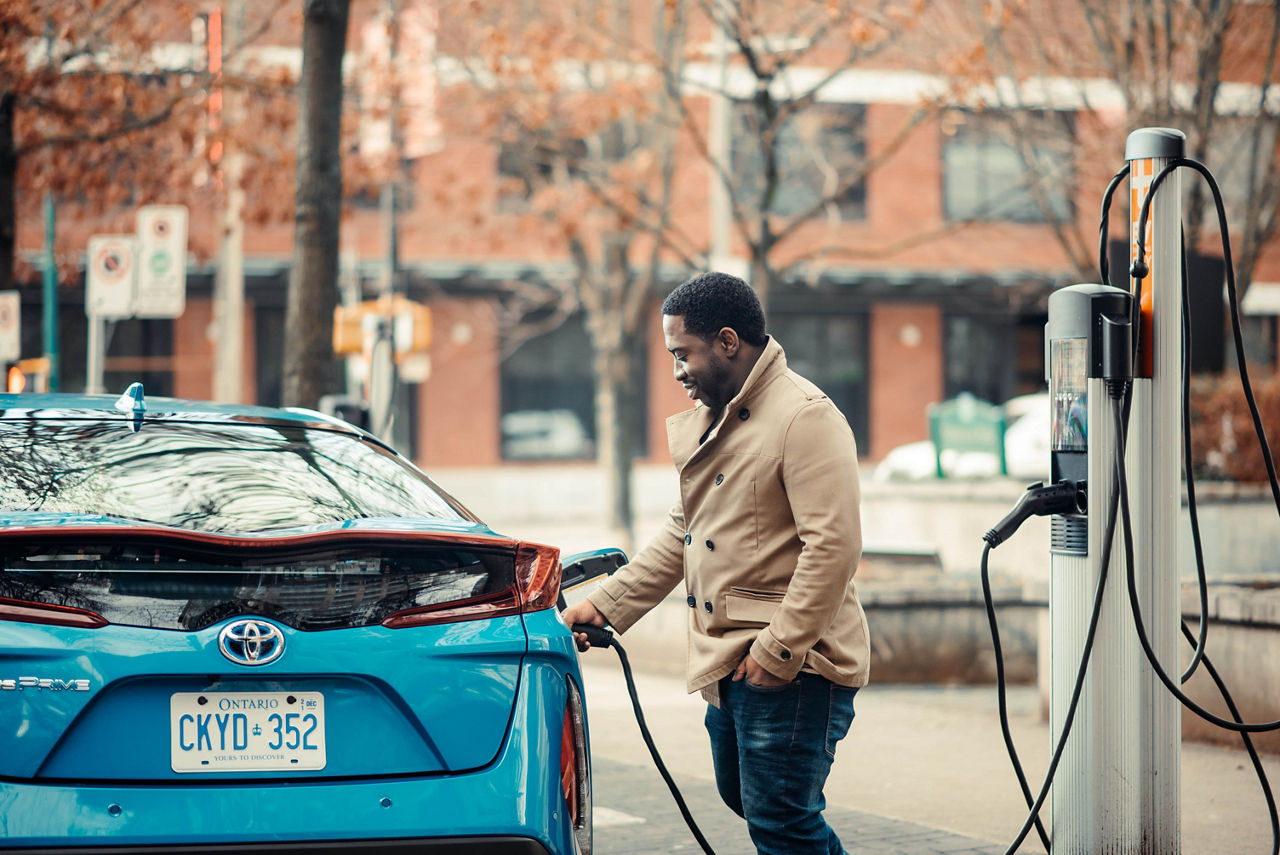Select a province & language
Entrance to this website assumes you have read and agree to these Legal Terms and Conditions and the Privacy Policy.
Entrance to this website assumes you have read and agree to these Legal Terms and Conditions and the Privacy Policy.

As gas prices continue to skyrocket across the country, more drivers are thinking of “going electric” – but what does that actually mean?
Like any new technology, it’s easy to get confused about how electric vehicles work, what maintenance they require, whether they’ll save you money and more.
To help you stay in-the-know, we’re busting four of the most common myths about electric vehicles.
Before we sort the fact from fiction about electric vehicles, it’s helpful to understand the four different types of electric vehicles in the Toyota lineup.
Hybrid Electric Vehicles

Hybrid Electric Vehicles (HEVs) seamlessly combine the power of a gas engine with electric motors. Their hybrid battery recharges on the go, so you never need to plug it in!
Plug-In Hybrid Vehicles

Plug-In Hybrids (PHEVs) operate the same way as HEVs, but have the option to be plugged in for extended electric-only range.
Battery Electric Vehicles

While specially made Toyota Premium Batteries ensure optimal performance for their gas counterparts, Battery Electric Vehicles (BEVs) are zero-emission vehicles powered by electricity alone. BEVs need to be plugged in, but also use regenerative braking to recharge the battery as you drive.
Hydrogen Fuel Cell Vehicles

Hydrogen Fuel Cell Electric Vehicles (FCEVs) use hydrogen as an energy source to power high-output electric motors, emitting only water from the tailpipe.
Now that you understand the four different types of electric vehicles and how they work, let’s explore some of the most common misconceptions about them.
MYTH: Electric Vehicles Require More Maintenance

Although they operate differently, Toyota electric and gas vehicles follow the same maintenance schedule – every 6 months or 8,000 km.
When you bring an electrified vehicle to your local dealer for maintenance, Toyota University Trained Technicians provide the same quality service and use similar Toyota Genuine Parts to those that you’d expect with a gas vehicle. Plus, depending on how the vehicle is driven, a hybrid electric system can even reduce how often other areas of the vehicle need servicing.
Toyota Service Connect allows you to be proactive and informed when it comes to vehicle maintenance. Get vehicle health reports, receive warnings, and access information you can show your Dealer when you’re in for an appointment.
MYTH: Electric Vehicles Are More Expensive

You can also lower maintenance costs with an electric vehicle. For example, BEVs don’t have an engine or transmission. With fewer mechanical parts that need service or replacing, you can lower your overall cost of ownership over time.
Because gas is more costly than electricity, an electric vehicle automatically helps you save money by not relying on fuel. If you want to compare how much you could save with an electrified vehicle, check out our helpful gas savings calculator.
Another way electric vehicles can help put more money in your pocket is with the federal government’s iZEV program, available in select provinces & territories. It offers incentives and deals of up to $5,000 for the purchase of a zero-emission vehicle, like a PHEV*.
MYTH: Electric Vehicles Are Slower

Electric motors generate 100% of their available torque instantly. This means you can accelerate faster, smoother and more quietly than you can while driving a gas-powered vehicle. In a PHEV, you can travel even faster and further in EV-mode than conventional hybrid electric vehicles.
MYTH: Electric Vehicles Are Not Greener

Using hydrogen, the most abundant element in the universe, vehicles with Toyota’s revolutionary hydrogen fuel cell electric (FCEV) technology emit only water vapour from their tailpipe – an entirely carbon-free process. Lowering our carbon footprint today can help us create a cleaner, more sustainable tomorrow.

From saving on gas to reducing harmful emissions to simplifying your overall vehicle maintenance, there are plenty of benefits to choosing an electric vehicle. If you’re already an electric vehicle Owner, contact your local Toyota Dealer and request a service appointment to help keep it in peak condition.
As a leader in hybrid electric technology for over 20 years, we hope by shedding light on the facts, that you feel empowered by everything electric vehicles have to offer.
Want to know more about electric and hybrid vehicles? Take a closer look at our electrified powertrains, vehicle lineup and FAQs.
DISCLAIMER
* For qualifying transactions that meet the Government of Canada Incentives for Zero-Emission Vehicles (iZEV) Program eligibility criteria. The Government of Canada Incentives for Zero-Emission Vehicles (iZEV) Program provides an incentive towards the purchase or lease of a new clean energy vehicle. Click here to learn more about Government of Canada Incentives for Zero-Emission Vehicles (iZEV) Program eligibility criteria and how to apply, or visit your preferred Toyota dealer.”